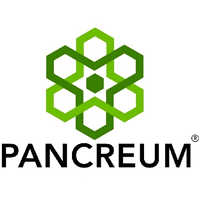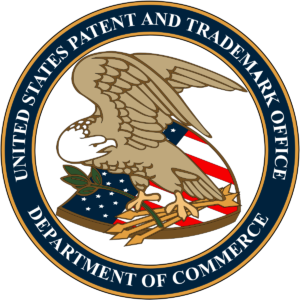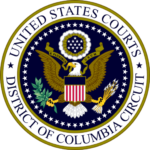A patent for an invention is the grant of a property right to the inventor, issued by the United States Patent and Trademark Office. Generally, the term of a new patent is 20 years from the date on which the application for the patent was filed in the United States or, in special cases, from the date an earlier related application was filed, subject to the payment of maintenance fees. U.S. patent grants are effective only within the United States, U.S. territories, and U.S. possessions.
Under certain circumstances, patent term extensions or adjustments may be available. The right conferred by the patent grant is, in the language of the statute and of the grant itself, “the right to exclude others from making, using, offering for sale, or selling” the invention in the United States or “importing” the invention into the United States. What is granted is not the right to make, use, offer for sale, sell, or import, but the right to exclude others from making, using, offering for sale, selling, or importing the invention.
Once a patent is issued, the patentee must enforce the patent without the aid of the USPTO.
1. Utility patents may be granted to anyone who invents or discovers any new and useful process, machine, article of manufacture, or composition of matter, or any new and useful improvement thereof;
2. Design patents may be granted to anyone who invents a new, original, and ornamental design for an article of manufacture; and
3. Plant patents may be granted to anyone who invents or discovers and asexually reproduces any distinct and new variety of plant. Includes cannabis varieties.

My invention was in a very early stage when I first talked to Jerry. I had a very rough idea, but no prototypes or market research. Jerry helped me define my invention, find a manufacturer and draw up the necessary paperwork. He took care of everything for me. Today, we are in production and taking orders, thank you, Jerry!
– Maribel Garza- Inventor “Light Runner”




I patented my medical device using the same strategies and planning I use when working for my clients and their ideas. Like many inventors, I too have many ideas and the patent process is a part of every new idea and invention that will go to market.
– Jerry Joseph, Co-Founder Pancreum

Now that you have produced a brilliant idea, you need to know how to protect it. Many inventors, including myself, have used the following strategy to quickly protect your idea, with the least amount of cost and risk.
First, before you contact a patent lawyer, you should use Google Patents to do a quick search on your own. You are looking for whether your invention is already covered in a patent. If you are worried that Google may use your search terms to beat you to the punch in filing a patent, you should try searching for generic words around the problem you are solving.
For instance, if your idea was a hammer that had a curved handle to give more leverage. You could try searching for “hammer,” “leverage,” and “curve” to see if there have been any patents filed with those key terms.
Patents may seem like complicated documents, but they are simple if you know where to look. You should just focus on the figures and the abstracts to see if the patent covers your idea. If you are serious about your Invention, I recommend you spend at least an hour researching on your own. Overall, you will save money, and you will learn a lot about the specifics of your industry.
The second step is when your search is complete. If at this point, you still believe that your idea is brilliant and unique, you should file a Provisional Patent Application to preserve your rights. Under the America Invents Act, “any public disclosure before the filing of a patent application renders the invention unpatentable.” So it is critical that you file a Provisional Patent before disclosing your idea to investors, engineers, or potential companies to prevent your idea from becoming unpatentable. You will still need to file an actual patent (non-Provisional) within a year to prevent others from selling a similar product.
A Provisional Patent gives you one year to disclose your idea. That year allows you to decide whether consumers, investors, or companies are interested in your Invention. When they are, you can decide on investing in an actual patent. A Provisional Patent is usually prepared and filed within a week. Fast turnaround enables inventors to get a head start on pursuing their idea.
After you file a Provisional Patent, you should learn “How to Turn Your Invention into a Functioning Prototype.”


“I want a patent, but it sounds complicated.”
I hear this from my clients all the time, and they are right. You don’t have to be a rocket scientist to get a patent—actually, you don’t even have to be a scientist. It isn’t easy for regular folks to pour over legal documents and engineering drawings.
It can take years and cost thousands of dollars. And it’s not just the application fee. It can take months for everything to go through the system. If something is wrong, you have to start back at zero. Yes, you have to spend all of the money again.
We make it easy and affordable to prepare and complete your patent application.




Why do I need a lawyer for
A Trademark?
How can I tell what
Type of Patent?
How can I make
A Prototype?
Do I need a trademark or
Copyright?
Do I need an LLC
To Sell Online?
The Intellectual Property Attorney you hire to represent you and your business is one of the most important decisions you will ever make.
These are the values that guide this firm:
Having a lawyer is often the difference between success and failure. A good intellectual property lawyer is priceless. Without one, you’re basically out in the cold on your own. I have seen so much go wrong for clients’ businesses and even personal finances apart from the company.
– Jerry K Joseph Esq. Founding Attorney




© 2023 Law Office Of Jerry Joseph. All Rights Reserved